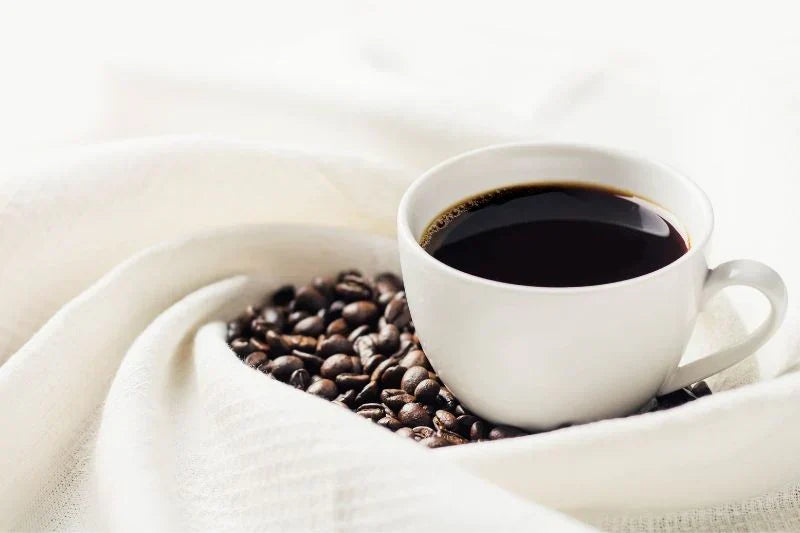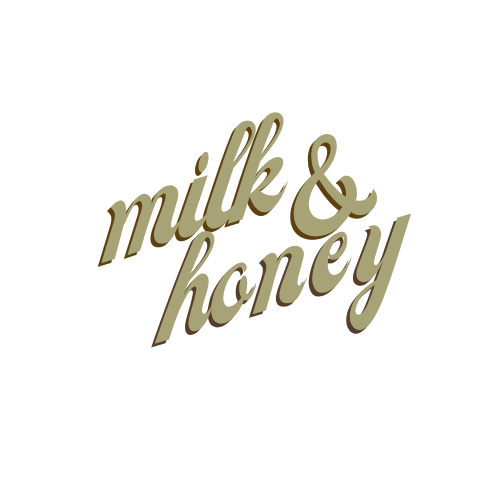
Can Decaffeinated Coffee Dehydrate You?
Share
TL;DR:
No, decaffeinated coffee will not dehydrate you. It contains only trace amounts of caffeine, which are too low to cause a diuretic effect. In fact, decaf contributes to your daily fluid intake and helps keep you hydrated.
The Truth About Decaf Coffee and Hydration

For years, many believed that coffee — even without caffeine — leads to dehydration. But science tells a different story. Decaffeinated coffee, unlike its caffeinated counterpart, has minimal caffeine and therefore doesn't significantly affect your body's hydration status.
At Milk & Honey Coffee, we take coffee — and your health — seriously. Here's what you need to know.
What Does Dehydration Really Mean?

To understand whether decaf coffee dehydrates you, let’s first clarify what dehydration is:
-
Dehydration is the loss of more fluids (and often electrolytes) than you take in.
-
This can lead to symptoms like fatigue, dizziness, dry mouth, and reduced urine output.
-
Hydration is crucial for regulating temperature, maintaining energy, and enabling bodily functions.
Key Concepts:
-
Fluid balance is the equilibrium between fluid intake and fluid loss.
-
Electrolyte loss often occurs through sweat, illness, or diuretics — not typically from drinking coffee.
-
Thirst signals are the body’s natural way of prompting hydration.
Does Caffeine Really Dehydrate You?

Caffeine is a mild diuretic, meaning it can slightly increase urine production. That’s the origin of the coffee dehydration myth. But here’s the science:
-
Regular coffee contains around 95 mg of caffeine per cup.
-
Studies show that only very high doses of caffeine (300 mg or more) begin to have noticeable diuretic effects.
-
Even then, the fluid in coffee typically offsets any loss due to increased urination.
Bottom line: Caffeine might make you urinate slightly more, but not enough to cause dehydration — especially when consumed in normal amounts.
What Makes Decaffeinated Coffee Different?

How Decaf Is Made:
-
Swiss Water Process: Uses water to remove caffeine naturally without chemicals.
-
CO₂ Method: Uses pressurized carbon dioxide to extract caffeine.
-
Solvent-based methods: Use FDA-approved chemicals like ethyl acetate or methylene chloride (safe in trace amounts).
Caffeine Content:
-
Regular coffee: ~95 mg caffeine per 8 oz cup.
-
Decaf coffee: ~2–5 mg caffeine per 8 oz cup.
The caffeine left in decaf is too low to cause any meaningful diuretic or dehydrating effects. And if you're worried about taste, you can also explore how to Reduce Coffee Bitterness Naturally for a smoother, more enjoyable brew.
Does Decaf Coffee Count Toward Your Fluid Intake?
Yes, 100%.
Here’s how it stacks up with other drinks:
|
Beverage |
Caffeine Content |
Hydration Contribution |
|
Water |
0 mg |
Excellent |
|
Herbal tea |
0 mg |
Excellent |
|
Decaf coffee |
2–5 mg |
Excellent |
|
Regular coffee |
~95 mg |
Good |
|
Juice |
0 mg |
Good (high sugar) |
USDA and health experts confirm that decaf coffee absolutely counts toward your daily fluid intake.
Can Decaf Coffee Hydrate As Well As Water?

Yes — while water remains the gold standard, decaf coffee performs well on the Hydration Index, a scale used to measure how well fluids are retained in the body.
Compared to other beverages:
-
Decaf ranks just below water and milk.
-
It’s comparable to herbal tea in hydration value.
-
It hydrates better than sugary sodas or alcohol.
Individual Hydration Needs and Decaf Coffee

While decaf is generally hydrating, individual factors can influence hydration:
Who Should Pay Extra Attention:
-
People on diuretics: May already have increased urine output.
-
Kidney conditions: Those with kidney disease should consult a healthcare provider before increasing fluid intake.
-
Caffeine-sensitive individuals: Decaf is a safer, low-stimulus option.
-
Athletes or heavy sweaters: May need higher water intake overall.
Even so, decaf coffee remains safe and hydrating for most people.
Is Decaf Coffee Better Than Herbal Tea?
Let’s compare:
|
Feature |
Decaf Coffee |
Herbal Tea |
|
Caffeine |
2–5 mg |
0 mg |
|
Hydration |
High |
Very High |
|
Antioxidants |
Moderate |
High (varies) |
|
Taste profile |
Rich, bold |
Mild, floral |
|
Ideal for caffeine-free |
Mostly |
Always |
Both are hydrating choices, but your preference may depend on flavor and health benefits.
Hydration Tips for Coffee Drinkers

To stay balanced throughout the day:
-
Alternate decaf coffee and water throughout your routine.
-
Don’t rely only on coffee for fluid needs.
-
Add electrolyte-rich drinks during high activity or heat exposure.
-
Listen to your body — thirst is the first warning sign of low hydration.
Pro tip from Milk & Honey Coffee: Pair your morning decaf with a tall glass of water for an extra hydration boost.
Decaf Coffee and Long-Term Hydration Health

Long-term hydration isn’t about drinking one perfect beverage — it’s about forming habits that help your body maintain balance.
Why decaf helps:
-
Encourages fluid intake in people who dislike plain water.
- Provides warm comfort without overstimulating the nervous system — especially helpful if you also prefer smoother brews like those explored in the Truth About Low-Acid Coffee.
-
Safe for pregnant individuals, older adults, and those with heart conditions.
Looking forward, more studies are likely to show how moderate decaf consumption supports wellness and fluid balance in various populations.
